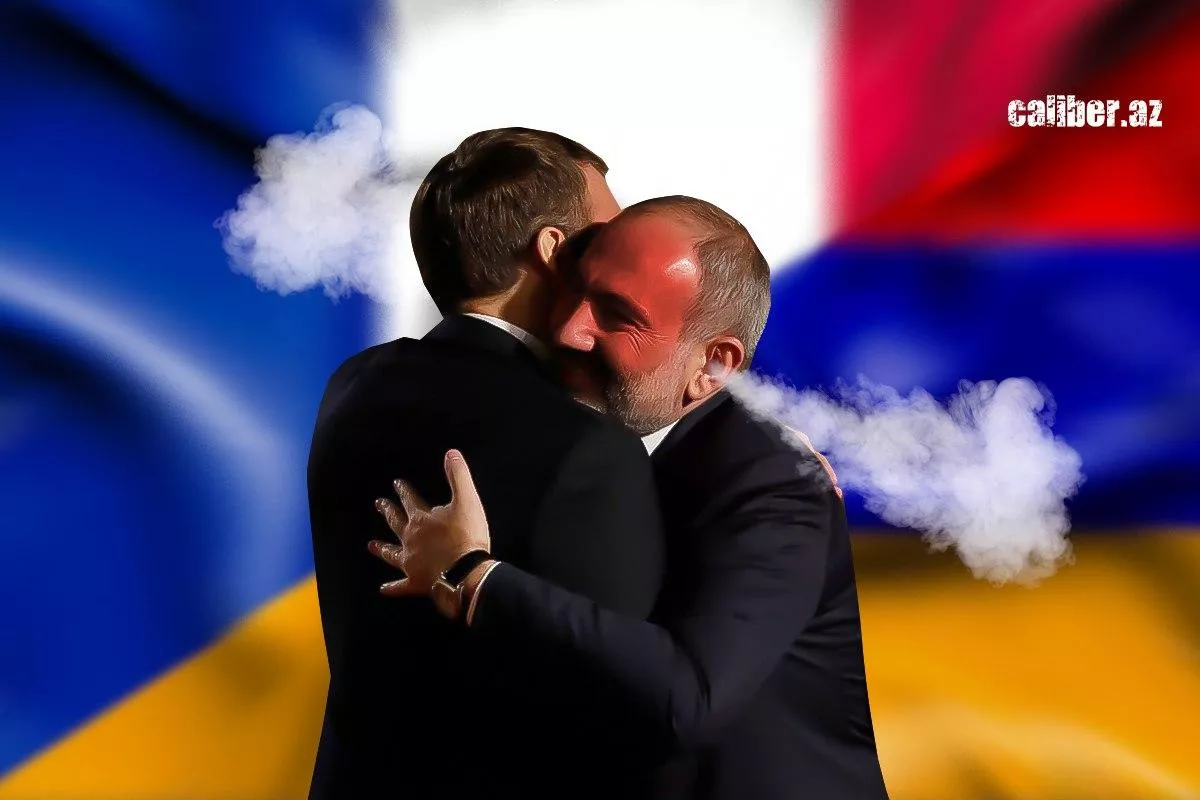Armenia and France: A dangerous duo undermining South Caucasus peace efforts Outcome of Pashinyan’s Paris trip
According to Armenian media reports, Armenian Prime Minister Nikol Pashinyan, who flew to Paris for the opening of the Notre-Dame de Paris cathedral after its restoration, discussed the Armenia-Azerbaijan settlement with French President Emmanuel Macron. This is the second visit of the Armenian Prime Minister to France in recent months.
During his previous visit to Paris in October this year, Pashinyan participated in the summit of the International Organization of La Francophonie and also discussed the peace process with Baku during a meeting with President Macron and Prime Minister Michel Barnier. At that time, the Armenian Prime Minister emphasized that 80% of the peace agreement had already been agreed with Azerbaijan, indirectly hinting at some progress in the negotiation process.
This fact was previously confirmed by the Azerbaijani side. President Ilham Aliyev, speaking at the session titled “Azerbaijan's role in the new geopolitical environment” at the International Cernobbio Forum in September of this year, stated that about 80 percent of the text of the peace agreement had already been agreed. "We are actively continuing negotiations, with almost 80 percent of the peace treaty paragraphs having been approved. We have already started not only the border delimitation process, but also demarcation. Yes, it’s a first small step. Only about 13 kilometers of our border, which is more than 1000 kilometers. But it is a step in the right direction. We hope that Azerbaijan’s initiative to start peace negotiations will result in a peace treaty that will be important not only for the Southern Caucasus but for all parts of the world," President Aliyev stated.
However, despite some progress in the Armenia-Azerbaijan settlement, Baku's key demand for a revision of Armenia's constitution— which includes territorial claims against Azerbaijan—has not been addressed by Yerevan. While Prime Minister Pashinyan's government makes unsubstantiated claims about its commitment to regional peace, the Armenian authorities, with the backing of their Western allies, particularly France, continue to hope for the signing of a partial peace agreement, without making the required constitutional amendments to Armenia's foundational law.

Given France's interest in destabilizing the South Caucasus, there is little doubt that during his recent meeting with Macron, Armenian Prime Minister Pashinyan may have received further instructions from Paris on how to undermine Baku's peace agenda. This aligns with France's strategic interests and fits into the hypocritical foreign policy of the Armenian government, which, while frequently declaring its readiness to unblock regional communications based on the principles of sovereignty, jurisdiction, reciprocity, and equality, continues to flagrantly violate international law by maintaining illegal territorial claims over another country's land. It is worth recalling that in April of this year, Armenian Foreign Minister Ararat Mirzoyan made similar statements in an interview with Al-Jazeera.
France, by providing military supplies to Yerevan, is encouraging Armenian revanchism. Recall that in June of this year, during the visit of Armenian Defence Minister Suren Papikyan to France, an agreement was signed for the purchase of CAESAR self-propelled artillery systems, along with an arrangement for military-technical cooperation between Armenia and the joint French-German defence conglomerate KNDS. Alongside the militarization of Armenia, France is also advocating for the extension of the EU’s espionage mission mandate at the Azerbaijan-Armenia border, a position fully supported by the Armenian side.
In October of this year, during a speech in the Armenian parliament, Armenian Foreign Minister Ararat Mirzoyan stated that Armenia supports the extension of the EU mission mandate. "As far as I know, the EU is considering the possibility of extending the mission's mandate. We believe the presence of EU observers is necessary," said Mirzoyan.
The deepening ties between Armenia and France clearly undermine the regional peace agenda and create new threats to the stability and security of the South Caucasus. This, in turn, poses real risks to the very sovereignty of Armenia itself.








